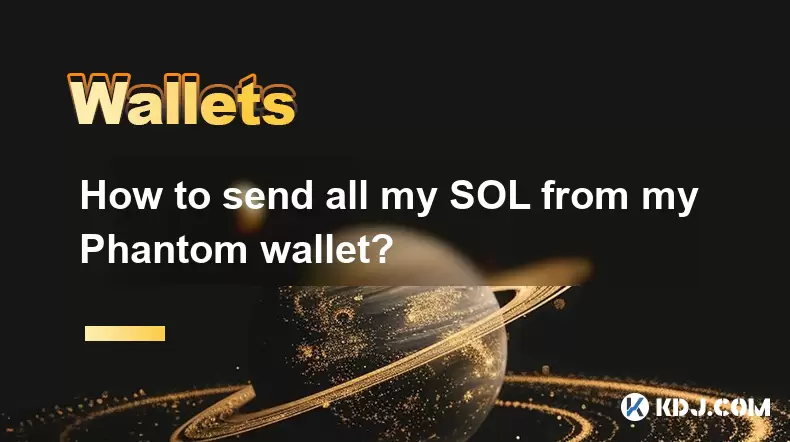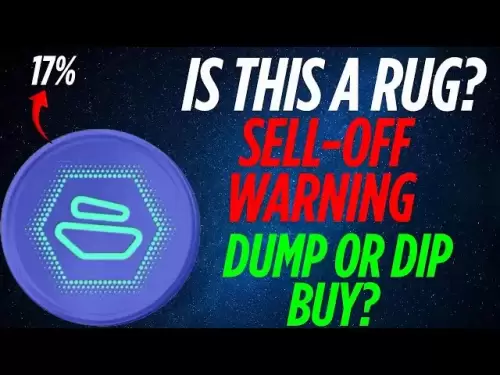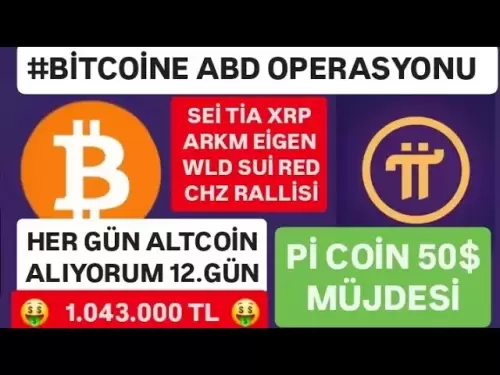-
 Bitcoin
Bitcoin $107,810.8710
-1.45% -
 Ethereum
Ethereum $2,531.4386
-1.75% -
 Tether USDt
Tether USDt $1.0000
-0.03% -
 XRP
XRP $2.2542
-0.99% -
 BNB
BNB $659.1350
-0.50% -
 Solana
Solana $148.5456
-2.40% -
 USDC
USDC $0.9999
-0.02% -
 TRON
TRON $0.2868
-0.44% -
 Dogecoin
Dogecoin $0.1666
-3.65% -
 Cardano
Cardano $0.5751
-2.36% -
 Hyperliquid
Hyperliquid $37.6845
-5.51% -
 Bitcoin Cash
Bitcoin Cash $494.9448
-0.65% -
 Sui
Sui $2.8396
-3.31% -
 Chainlink
Chainlink $13.2423
-2.59% -
 UNUS SED LEO
UNUS SED LEO $9.0482
0.02% -
 Stellar
Stellar $0.2467
-2.44% -
 Avalanche
Avalanche $17.8165
-3.63% -
 Shiba Inu
Shiba Inu $0.0...01158
-2.41% -
 Toncoin
Toncoin $2.7397
-3.42% -
 Hedera
Hedera $0.1560
-2.73% -
 Litecoin
Litecoin $85.8559
-2.34% -
 Monero
Monero $315.3710
-2.30% -
 Dai
Dai $1.0001
0.00% -
 Polkadot
Polkadot $3.3443
-2.03% -
 Ethena USDe
Ethena USDe $1.0001
0.01% -
 Bitget Token
Bitget Token $4.2888
-3.73% -
 Uniswap
Uniswap $7.3388
-1.57% -
 Aave
Aave $278.2986
-3.05% -
 Pepe
Pepe $0.0...09807
-3.67% -
 Pi
Pi $0.4563
-2.39%
What if Trust Wallet transaction fails?
If your Trust Wallet transaction fails, identify the issue, troubleshoot by adjusting gas fees or verifying the address, and resend if necessary. Contact support if unresolved.
Apr 17, 2025 at 02:08 pm

When dealing with cryptocurrency transactions using Trust Wallet, it's essential to understand what to do when a transaction fails. A failed transaction can be frustrating, but with the right knowledge, you can address the issue effectively. This article will guide you through the steps to take if your Trust Wallet transaction fails, including troubleshooting, resending transactions, and understanding common reasons for failures.
Identifying a Failed Transaction
The first step in addressing a failed transaction is to identify that the transaction has indeed failed. In Trust Wallet, a failed transaction will typically show as "Failed" or "Rejected" in the transaction history. To check your transaction status:
- Open Trust Wallet on your device.
- Navigate to the "Transactions" tab.
- Look for the specific transaction in question. If it shows as "Failed" or "Rejected," it has not been processed successfully.
Identifying a failed transaction is crucial because it allows you to take the necessary steps to rectify the situation.
Common Reasons for Transaction Failures
Understanding why a transaction might fail can help you prevent future issues. Some common reasons for transaction failures in Trust Wallet include:
- Insufficient Gas Fees: If the gas fee set for the transaction is too low, the transaction may not be processed by the network.
- Network Congestion: During peak times, the network might be congested, leading to delays or failures.
- Incorrect Address: Sending funds to an incorrect or invalid address will result in a failed transaction.
- Smart Contract Issues: If you're interacting with a smart contract, errors within the contract can cause transaction failures.
By recognizing these common reasons, you can take proactive measures to avoid similar issues in the future.
Troubleshooting a Failed Transaction
Once you've identified a failed transaction, the next step is to troubleshoot the issue. Here's how you can troubleshoot a failed transaction in Trust Wallet:
- Check Gas Fees: If the transaction failed due to insufficient gas fees, you may need to adjust the gas fee and resend the transaction. To do this:
- Open Trust Wallet.
- Go to the "Transactions" tab and find the failed transaction.
- Click on the transaction to view more details.
- Adjust the gas fee to a higher amount and resend the transaction.
- Verify the Address: If the transaction failed due to an incorrect address, double-check the recipient's address before resending the transaction.
- Check Network Status: If the network is congested, wait for a less busy time and then resend the transaction.
Troubleshooting is a critical step in resolving transaction failures and ensuring that your funds are transferred successfully.
Resending a Failed Transaction
If the troubleshooting steps do not resolve the issue, you may need to resend the transaction. Here's how to resend a failed transaction in Trust Wallet:
- Access the Failed Transaction: Go to the "Transactions" tab and find the failed transaction.
- Review Details: Click on the transaction to review its details, such as the recipient's address and the amount.
- Adjust Gas Fees: If necessary, adjust the gas fee to a higher amount to ensure the transaction is processed.
- Resend the Transaction: Click on the "Resend" option and confirm the transaction details. The transaction will be sent again with the new parameters.
Resending a failed transaction can be an effective way to ensure that your funds reach the intended recipient.
Contacting Support
If all else fails and you're unable to resolve the issue on your own, it's important to contact Trust Wallet's support team. Here's how to reach out for help:
- Open Trust Wallet: Launch the app on your device.
- Go to Settings: Navigate to the "Settings" menu.
- Select Support: Choose the "Support" option to access the support center.
- Submit a Ticket: Describe the issue with your failed transaction in detail, including any error messages and steps you've already taken to resolve it.
Contacting support can provide you with additional guidance and assistance in resolving complex issues related to failed transactions.
Understanding Transaction Fees and Gas
To prevent future transaction failures, it's essential to understand how transaction fees and gas work in the cryptocurrency ecosystem. In Ethereum-based networks, gas is the unit used to measure the computational effort required to execute operations. Here's a brief overview:
- Gas Price: The amount of Ether (ETH) you're willing to pay per unit of gas. A higher gas price can result in faster transaction processing.
- Gas Limit: The maximum amount of gas you're willing to use for the transaction. If the gas limit is too low, the transaction may fail.
- Transaction Fee: Calculated as Gas Price x Gas Used. If the transaction fee is too low, the transaction may not be processed.
Understanding transaction fees and gas can help you set appropriate fees and avoid transaction failures due to insufficient gas.
Frequently Asked Questions
Q: Can I recover funds from a failed transaction?
A: In most cases, funds from a failed transaction are returned to the sender's wallet automatically. However, if the transaction is stuck in a pending state, you may need to wait for it to be resolved by the network or contact support for assistance.
Q: How long should I wait before resending a failed transaction?
A: It's generally recommended to wait at least 24 hours before resending a failed transaction. This allows enough time for the network to process any pending transactions and reduces the risk of creating duplicate transactions.
Q: Can transaction failures be prevented?
A: While it's not possible to prevent all transaction failures, you can minimize the risk by ensuring you use the correct recipient address, setting appropriate gas fees, and avoiding peak network congestion times.
Q: What should I do if my transaction is stuck in a pending state?
A: If your transaction is stuck in a pending state, you can try increasing the gas fee and resending the transaction. If that doesn't work, wait for the network to resolve the issue or contact Trust Wallet support for further assistance.
Disclaimer:info@kdj.com
The information provided is not trading advice. kdj.com does not assume any responsibility for any investments made based on the information provided in this article. Cryptocurrencies are highly volatile and it is highly recommended that you invest with caution after thorough research!
If you believe that the content used on this website infringes your copyright, please contact us immediately (info@kdj.com) and we will delete it promptly.
- BlockDAG Leads the Web3 Race with Sports Partnerships and Strategic Pricing
- 2025-07-08 10:50:12
- Pepe, Dogecoin, Shiba Inu: Meme Coin Mania or Calculated Crypto?
- 2025-07-08 10:30:12
- Bitcoin, Ethereum, and Tariff Tussles: Decoding the Crypto Market's Latest Moves
- 2025-07-08 10:30:12
- BOOM Airdrop 2025: Claim Tokens and Join the Web3 Revolution
- 2025-07-08 10:35:12
- Ethereum, Exchanges, and Price Resilience: Navigating the Crypto Landscape
- 2025-07-08 08:30:13
- Bitcoin's NVT Golden Cross: Is a Local Top Brewing?
- 2025-07-08 09:10:11
Related knowledge

How to cancel a pending transaction in Phantom wallet?
Jul 03,2025 at 07:21pm
Understanding Pending Transactions in Phantom WalletA pending transaction in the Phantom wallet occurs when a user initiates a transfer or interaction with the Solana blockchain, but it hasn't yet been confirmed by the network. This can happen due to various reasons such as low transaction fees, network congestion, or incorrect gas settings. It's import...

How to see the estimated value of my tokens in Phantom wallet?
Jul 04,2025 at 12:21am
What is Phantom Wallet?Phantom wallet is one of the most popular cryptocurrency wallets designed for the Solana blockchain. It allows users to store, send, receive, and manage various tokens built on Solana, including SPL tokens and NFTs. The wallet offers a user-friendly interface, making it accessible for both beginners and advanced users in the crypt...

How to lock my Phantom wallet extension?
Jul 03,2025 at 11:14am
What Is the Phantom Wallet and Why Lock It?The Phantom wallet is a popular non-custodial cryptocurrency wallet designed for interacting with the Solana blockchain. Supporting both browser extensions and mobile apps, Phantom allows users to store, send, receive, and stake SOL tokens, as well as interact with decentralized applications (dApps). Securing y...

Does Phantom wallet offer two-factor authentication (2FA)?
Jul 03,2025 at 09:00am
Understanding Phantom Wallet and Its Security FeaturesPhantom wallet is a widely used non-custodial cryptocurrency wallet that supports the Solana blockchain. It allows users to store, send, receive, and interact with decentralized applications (dApps) seamlessly. As security is a top priority for any crypto wallet user, security features like two-facto...

How to send all my SOL from my Phantom wallet?
Jul 06,2025 at 10:00am
Preparing to Send SOL from Your Phantom WalletBefore initiating any transaction, it is crucial to ensure that your Phantom wallet is fully set up and connected to the correct network. Phantom supports multiple networks, but for sending SOL, you must be on the Solana blockchain. Confirm this by checking the network indicator in the top-right corner of th...

What is "rent" on Solana and how does it affect my Phantom wallet?
Jul 02,2025 at 08:35pm
Understanding 'Rent' on SolanaIn the context of Solana, the term 'rent' refers to a storage fee that users pay for maintaining data on the blockchain. Unlike Ethereum, where storage costs are paid once via gas fees during contract deployment, Solana implements a recurring cost model to ensure efficient usage of network resources. This means that any acc...

How to cancel a pending transaction in Phantom wallet?
Jul 03,2025 at 07:21pm
Understanding Pending Transactions in Phantom WalletA pending transaction in the Phantom wallet occurs when a user initiates a transfer or interaction with the Solana blockchain, but it hasn't yet been confirmed by the network. This can happen due to various reasons such as low transaction fees, network congestion, or incorrect gas settings. It's import...

How to see the estimated value of my tokens in Phantom wallet?
Jul 04,2025 at 12:21am
What is Phantom Wallet?Phantom wallet is one of the most popular cryptocurrency wallets designed for the Solana blockchain. It allows users to store, send, receive, and manage various tokens built on Solana, including SPL tokens and NFTs. The wallet offers a user-friendly interface, making it accessible for both beginners and advanced users in the crypt...

How to lock my Phantom wallet extension?
Jul 03,2025 at 11:14am
What Is the Phantom Wallet and Why Lock It?The Phantom wallet is a popular non-custodial cryptocurrency wallet designed for interacting with the Solana blockchain. Supporting both browser extensions and mobile apps, Phantom allows users to store, send, receive, and stake SOL tokens, as well as interact with decentralized applications (dApps). Securing y...

Does Phantom wallet offer two-factor authentication (2FA)?
Jul 03,2025 at 09:00am
Understanding Phantom Wallet and Its Security FeaturesPhantom wallet is a widely used non-custodial cryptocurrency wallet that supports the Solana blockchain. It allows users to store, send, receive, and interact with decentralized applications (dApps) seamlessly. As security is a top priority for any crypto wallet user, security features like two-facto...

How to send all my SOL from my Phantom wallet?
Jul 06,2025 at 10:00am
Preparing to Send SOL from Your Phantom WalletBefore initiating any transaction, it is crucial to ensure that your Phantom wallet is fully set up and connected to the correct network. Phantom supports multiple networks, but for sending SOL, you must be on the Solana blockchain. Confirm this by checking the network indicator in the top-right corner of th...

What is "rent" on Solana and how does it affect my Phantom wallet?
Jul 02,2025 at 08:35pm
Understanding 'Rent' on SolanaIn the context of Solana, the term 'rent' refers to a storage fee that users pay for maintaining data on the blockchain. Unlike Ethereum, where storage costs are paid once via gas fees during contract deployment, Solana implements a recurring cost model to ensure efficient usage of network resources. This means that any acc...
See all articles

























































































